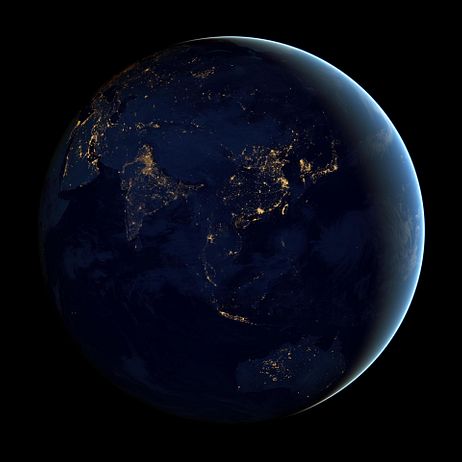The Indo-Pacific region a geopolitical region stretching from the west coast of the United States to the west coast of India, the Indo-Pacific is a 24 nation’s regional framework comprising the waters of the Indian Ocean, the western and central Pacific Ocean, and the seas connecting the two in the general area of Indonesia. Since 2011, the term “Indo-Pacific” is being used for the global strategic or the geopolitical discourse. The growing importance of the Indo-Pacific can be understood in two broad ways.
- The growing footprint of China across the region
- The relative decline of the U.S. alliance system and it’s increase of interest
The indo-Pacific has become an important part of ‘India’s Foreign Policy’. It is a way to describe about India’s focus on maritime area. Maritime threats and Globalization has decreased the physical borders and increased the importance of ensuring secure seas for the unhindered mobility of energy and trade. India has been regarded as an important pioneer in this regard by the countries such as Australia, US and Japan.
The growing power and influence of China and its continuing presence in the Indian Ocean Region (IOR) has made India to give more attention to the region. Although India has never intended to become a hegemonic power of any region yet the Clashes at the Galwan Valley in 2020 has made India to take more responsible position for itself in the Indo-Pacific.
India has been participating in mechanism like the East Asia Summit (EAS), Indian Ocean Rim Association (IORA), Association of Southeast Asian Nation (ASEAN) to make sure to put forward the efforts to maintain the safety and security of the region. India’s serious commitment can be seen through the set-up of the Indo-Pacific Wing and Ocean Division by the Ministry of External Affairs (MEA). India’s Ideas like Security and Growth for All in the Region (SAGAR), holds that the Indo-Pacific is open, free and inclusive, and one that is established upon a collaborative and collective rules-based system.
In 2020, Prime Minister Narendra Modi had announced that Andaman and Nicobar islands would be developed as a maritime and starts up hub for the country. India needs to improve the infrastructure and deploy warships and planes in the strategically important areas such as Andaman and the Nicobar Islands. India-Pacific gives a large scope of opportunity for India to address new strategic and security environment. India’s new approach will help to build up better relationship with island nations and smaller states hence providing a better and secure environment. India will have to invest its resources and capital develops the region and put it into the advantages. The government should consider holding a bilateral “2+2” mechanism with the defence and foreign ministers of Australia, Japan and the U.S on regular to focus more on the development.
While the Indo-Pacific may have been a necessary construct as a response to a changing world order, has changed India’s foreign policy priorities and engagements. The growing relationship between India’s neighbourhood country and China puts stress on the growth and development of the region by the country especially so as to maintain the peace. With the countries like US and Japan focussing on the area makes it easy for India to have better strategy to safeguard the region in a stronger and more productive way.









